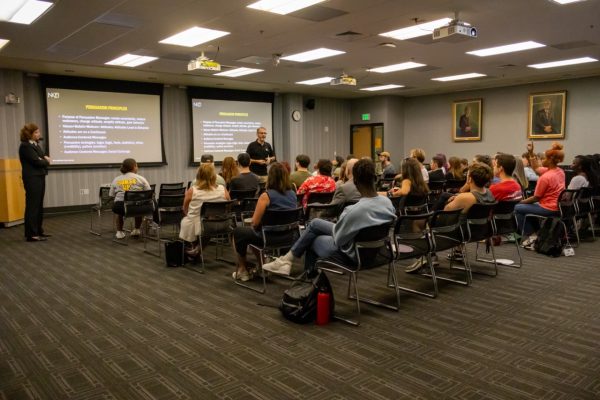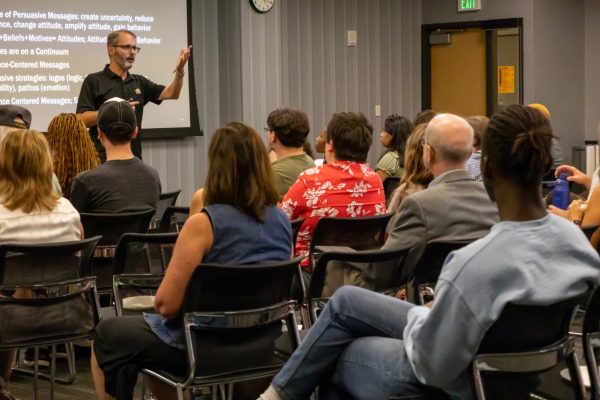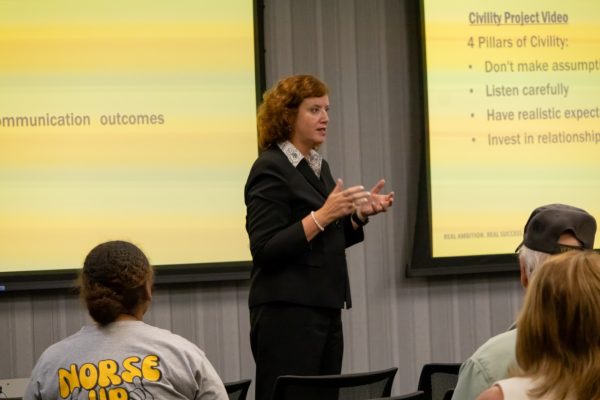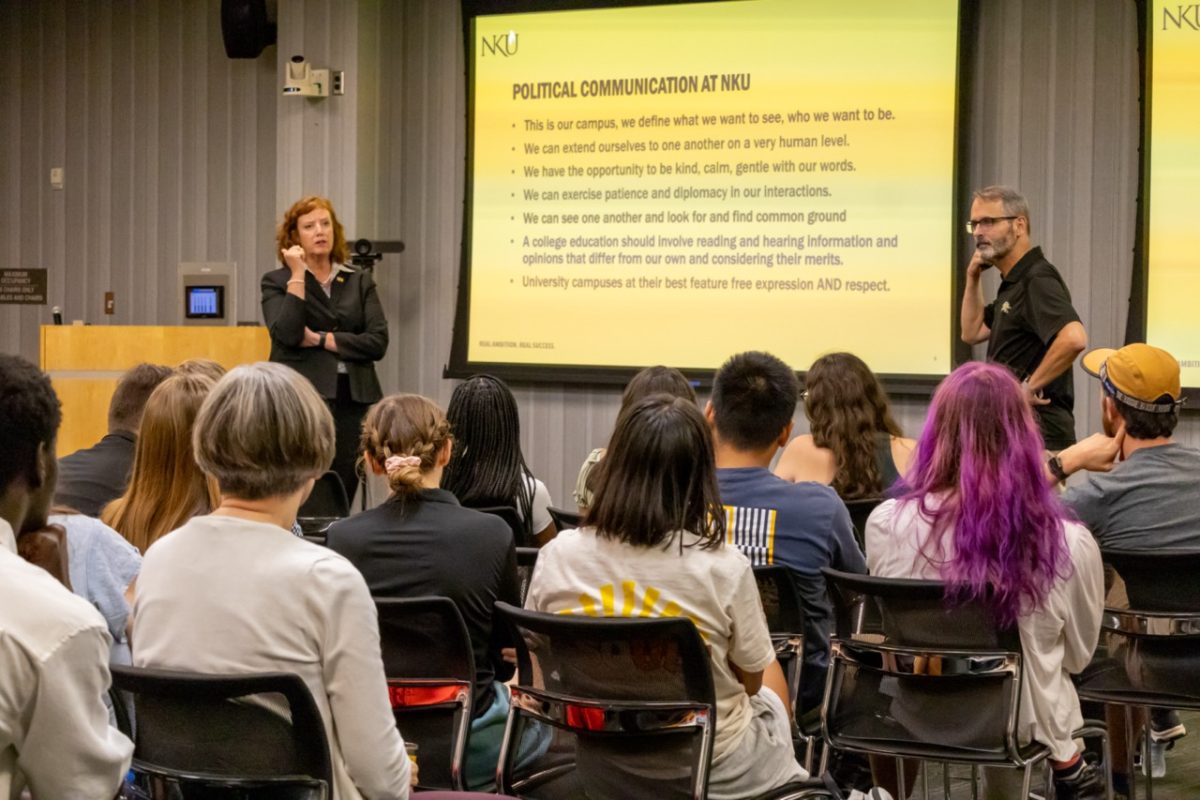Editor’s note: The writer of this article is part of the Political Communication course taught by President Short-Thompson and Hart.
President Cady Short-Thompson and Dr. Zachary Hart delivered the first night of “Victor Talks and Issues” regarding the 2024 presidential election on Monday night.
The pair spoke about understanding political communication and the challenges and implications it has on today’s world. Short-Thompson and Hart are co-teachers of Political Communication, a special topics course for the fall semester for political science and communications students.
Victor Talks and Issues is a four-part series taking place throughout the fall semester, which brings in faculty members as guest speakers to discuss topics relevant to the upcoming presidential election. The event is sponsored by NKU’s Student Government Association (SGA) and the Scripps Howard Center for Civic Engagement. The talks seek to allow attendees to ask questions in a safe space about issues that will affect the election, said SGA President Lucy Burns.
Nearly all the seats inside Student Union room 104 were filled on Monday night as Short-Thompson and Hart began their presentation.

Hart kicked off the night by providing context on how political communication works. “Politics is really about how we use power and influence to achieve goals for society,” he said. Persuasion is one of the key elements when it comes to this type of communication, the professor said, but it’s important that audiences are not forced into a decision.
In today’s society with evolving technology, artificial intelligence, a rapid news cycle and more, politics and the election season can be tough, Hart said. We saw lies, misinformation and name-calling 200 years ago too, but now it all seems to happen much quicker with much more saturation, he explained.
Politicians and their campaigns tend to focus their messages on certain audiences, and they look at the audience’s values, beliefs and attitudes. Polling the audience, Hart recognized that people’s values can come from their education, family, faith, culture and more.
Short-Thompson then shared about her experience and expertise in political communication, a course she founded at NKU. From 1996 until 2016, the now-president went to New Hampshire during each election year to conduct research during the first primary election.
“I always got that front row seat and was always right there with those early candidates as they were beginning their campaigns,” Short-Thompsons said.
The president said she was always mindful of how different candidates were able to connect with their audience and how you could feel it in the room when their message was being well-received.

The conversation then shifted to learning how to navigate the difficulty of election season and the tensions that will come with such division.
The speakers discussed four pillars of civility to help communicate with those who may hold different values, beliefs or attitudes when it comes to politics:
- Don’t make assumptions
- Listen carefully
- Have realistic expectations of communication outcomes
- Invest in relationships
“It’s okay to be quiet sometimes,” Hart said when it comes to listening carefully. Too often, we listen just to respond instead of taking in what the other person is saying, he said.
At the end of the day, it’s much more difficult to try and totally change someone’s attitude on a topic than it is to just have a conversation and develop a relationship, the two said.
“I just hope that you’ll not lose sight of the goodness in people, the humanity in people,” Short-Thompson said.
How we choose to interact with one another as a campus community is important, the president said. We get to define our community and how we treat one another at NKU will be important, especially as we travel through the election season, she explained.

It’s important to remember that most people fall somewhere in the middle when it comes to polarizing issues, Hart said.
“I would say the older I’ve gotten, the less I see things in extreme black and white, and the more I see nuance,” Short-Thompson said.
The most important thing to do when it comes to politics is to find a way to get involved, they shared. Both speakers highlighted how important it is to make a plan to vote and ensure that all students who are eligible are registered to vote.
As Monday’s Victor Talks and Issues wrapped up, Burns shared that the next session will take place on Monday, Sept. 30 in SU 104 at 5 p.m. This session will feature Dr. David Childs and his take on “Race and the Election.”


